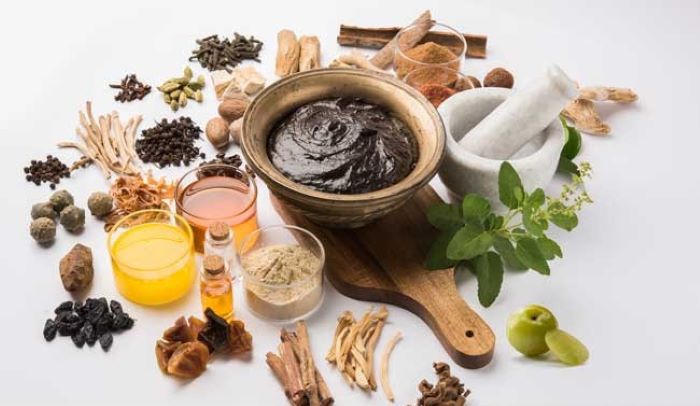
Diabetes has grown as a major global health concern, affecting millions throughout the world. It is a metabolic condition with increase in blood sugar levels. Diabetes occurs when the pancreas either generates insufficient insulin or the cells in the body do not respond appropriately to insulin.
This chronic illness results from the body’s inability to manage blood sugar levels correctly. According to the International Diabetes Federation, India will have the most diabetes sufferers worldwide by 2045.
Modern medicine offers a range of treatment options for diabetes. However, Ayurveda, the ancient Indian system of medicine, provides a holistic approach to managing diabetes. Amrith Noni D Plus is considered the best ayurvedic Syrup for diabetes, which manages blood sugar levels.
This medicine contains more Noni fruit extract and Ayurvedic ingredients, which help the pancreas create more insulin in the body. Now, you will see how Ayurveda helps manage diabetes.
Ayurveda and Diabetes
Diabetes is also known as hyperglycemia or Prameha in Ayurveda. When blood sugar levels rise, the pancreas secretes insulin into the blood.
This metabolic condition occurs when insulin synthesis is insufficient, an inefficient response of the body’s cells to insulin, or both, resulting in high blood glucose levels.
In Ayurveda, diabetes is known as “Madhumeha” or “Prameha.” The name “Madhumeha” means “sweet urine,” with “Madhu” meaning sweet and “Meha” indicating urine.
Types of diabetes
There are three primary types of diabetes:
Type 1 diabetes
It is also known as insulin-dependent diabetes or juvenile diabetes. It is usually develops during childhood.
Individuals with type 1 diabetes produce little or no insulin from their pancreas. The actual cause of type 1 diabetes is unknown, but it is thought to be impacted by some viruses or genetic factors.
Type 2 Diabetes
In type 2 diabetes, the body still produces insulin, but the cells are unable to use it properly to turn sugar into energy. This disorder usually develops over several years and is frequently linked to conditions such as insufficient physical activity, obesity, and an unhealthy diet.
However, following an Ayurvedic diet and taking Ayurvedic medicines can help manage symptoms and potentially reverse the condition.
Gestational diabetes
Gestational diabetes is a particular kind of diabetes that only affects pregnant women. Symptoms often resolve after delivery. However, women who have experienced gestational diabetes have a higher chance of getting type 2 diabetes later in life.
Ayurveda provides a diabetes solution for gestational diabetes that emphasizes dietary and lifestyle changes, and the use of herbal supplements.
Ayurveda for diabetes treatment
Ayurveda and diabetes management are closely intertwined, with Ayurvedic principles offering several key strategies for treatment. Some of these include.
Herbal medication
Ayurvedic practitioners often prescribe herbal medication to help manage the symptoms of diabetes. Several herbs and ingredients are known for their effectiveness in regulating blood sugar levels and supporting overall health. Some of these include:
Methika(Fenugreek): Fenugreek seeds are rich in soluble fiber and compounds that help reduce blood sugar levels. It improves glucose tolerance, and combat insulin resistance.
Amla (Indian Gooseberry): Amla is renowned for its hypoglycemic properties, which help lower blood sugar levels. It improves insulin sensitivity, making it particularly beneficial for individuals with type 2 diabetes.
Haridra (Turmeric): Turmeric contains curcumin, known for its anti-inflammatory and antioxidant properties. It reduces insulin resistance, supports healthy blood sugar levels, and enhances insulin sensitivity.
Guduchi: Guduchi regulates blood sugar levels, promotes insulin synthesis, and possesses antioxidant properties that support healthy metabolic function. It is beneficial for managing diabetes.
Noni Fruit: Noni fruit aids in managing blood sugar levels by improving glucose metabolism, increasing insulin sensitivity, and potentially preventing weight gain in diabetic individuals.
Saptachakra: Saptachakra lowers blood sugar and triglyceride levels while reducing oxidative stress in the kidneys, which contributes to diabetes management.
Vrikshamla: Its antioxidant and anti-diabetic properties help control glucose levels. The hydroxycitric acid in its peel also aids in weight loss, which is beneficial for diabetes management.
Actually, buying and incorporating all the ingredients mentioned above into your daily life can be daunting. Here comes Amrith Noni D Plus as a lifesaver! Their products are packed with all the important ingredients mentioned above, which help manage blood sugar levels effectively.Following an Ayurvedic diet for diabetes patients will become more convenient and accessible with Amrith Noni D Plus.
Panchakarma
Panchakarma, an Ayurvedic treatment modality, offers comprehensive cleansing and rejuvenation for the mind, body, and consciousness. It aids in eliminating toxins from the body. Here are some Panchakarma treatments for managing diabetes:
Vamana: This therapy involves controlled therapeutic vomiting and is typically recommended for individuals with an excess of Kapha dosha. Vamana helps in purging toxins from the upper respiratory and digestive tracts, improving digestion, reducing body weight, and balancing blood sugar levels.
Virechana: Virechana is a purgation therapy that targets Pitta dosha and is particularly beneficial for individuals with diabetes associated with excessive heat and inflammation. It cleanses the liver and intestines, which promotes better digestion and metabolism.
Basti: Bastican help balance Vata dosha and manage diabetes. It uses herbal oils and decoctions to cleanse the colon and nourish the body. Basti treatments may improve bowel movements and enhance insulin sensitivity.
These Panchakarma treatments offer a holistic approach to diabetes management, but it is essential to consult a qualified ayurvedic doctor for diabetes to determine the most suitable treatment plan based on individual needs and constitution.
Dietary modifications
Dietary changes are an important part of Ayurvedic diabetes therapy. It focus on eating a balanced and healthy diet to regulate blood sugar levels properly. Ayurvedic herbs for sugar control offer natural solutions to support insulin sensitivity, promote glucose metabolism, and maintain overall well-being. Here are some key dietary guidelines recommended by Ayurveda for diabetes:
Prefer Whole Foods: Ayurveda promotes the consumption of whole, unprocessed foods such as leafy vegetables, fruits, whole grains, nuts, seeds, and legumes. These nutrient-dense foods provide continuous energy, and help reduce blood sugar rises.
Limit Refined Carbohydrates and Sugars: To avoid sudden blood sugar spikes, limit your intake of refined and sugary meals such as white rice, white bread, sugary snacks, and sweetened beverages.
Meal Timing: Eating three balanced meals per day at regular intervals helps to normalize blood sugar levels and prevents sharp variations. Avoiding snacks in between meals might also assist to control blood sugar levels.
Proper Meal Combinations: According to Ayurveda, adequate meal combinations are essential for optimal digestion and preventing poisonous residue accumulation. Avoid combining incompatible foods, such as milk and sour fruits, to maintain digestive health.
Ayurvedic Lifestyle Tips for Diabetes Management
Yes!! Ayurvedic lifestyle will preventing and managing diabetes. If you are one who is more concerned about the health, it is essential to follow some ayurvedic lifestyle. Here are some key recommendations from Ayurveda:
- Regular Exercise and Physical Activity
Regular physical activity tailored to your body type and preferences is essential. Activities such as walking, yoga, swimming, or any exercise that benefits your heart and enhances insulin sensitivity can be beneficial for managing diabetes and maintaining a healthy weight.
- Stress Management Techniques
Stress can significantly impact blood sugar levels. Ayurveda emphasizes the importance of stress management through practices like meditation, deep breathing exercises, and activities that promote relaxation and mental well-being. Considering more about self-care and finding ways to reduce stress will bring positive impact in your health.
- Adequate Sleep and Rest
Sound sleep is essential for overall health, especially it manages the blood glucose level. Ayurveda recommends establishing a regular sleep schedule, practicing good sleep hygiene, and creating a relaxing sleep environment. Aim for 7-8 hours of sleep each night to support hormone balance, metabolism, and overall well-being.
Final Words
Ayurveda provides a holistic, time-tested approach to naturally controlling diabetes. Its emphasis on tailored dietary guidance, herbal medicines, lifestyle changes, and conscious practices makes it an effective supplement to traditional diabetic therapies. Ayurveda’s potential benefits make it an appealing alternative for people seeking a holistic and integrative approach to diabetes care.
Additionally, if you want to buy Noni ayurvedic Products online, invest in Amrith Noni D Plus for a better result. This unique formulation combines all the essential Ayurvedic ingredients to support diabetes management effectively. Amrith Noni D Plus is meticulously crafted to promote balanced blood sugar levels, enhance insulin sensitivity, and support overall well-being. With regular use, you will experience the natural benefits of Ayurveda, feeling revitalized and empowered on your journey towards optimal health. Do you have any doubts about consuming this Ayurvedic medicine? If so, get a free consultation with experts who are always ready to help you with any queries.



